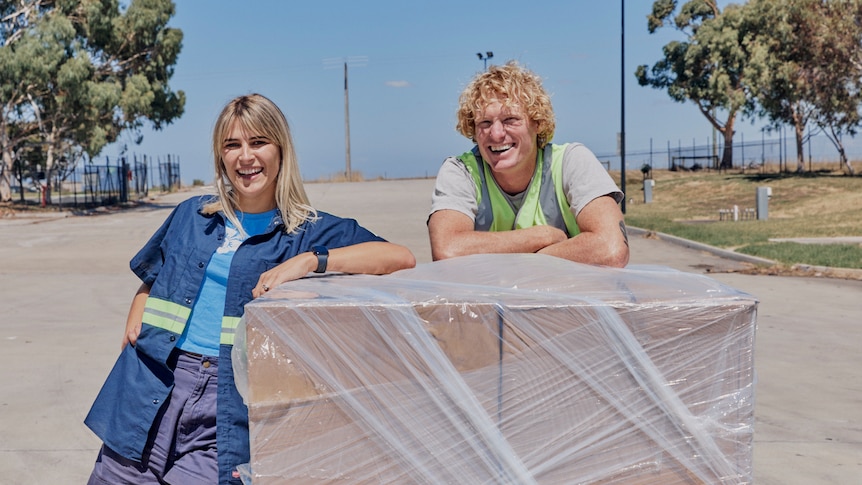In a massive warehouse in Melbourne’s west, a gleaming new machine hums and purrs around the clock, extruding large rolls of clear plastic wrap.
Turning waste into wrapping Jordy Kay was formerly an organic winemaker striving to make chemical-free wine but was dismayed to then see it packaged on a pallet wrapped in yards of single-use plastic.
His company, Eco-Pak, now produces a range of compostable packaging — from coffee cups to oyster trays — made from renewable sugarcane pulp, which is a by-product of the sugar refining industry.
“Consumers are becoming more aware of the environmental impacts that their choices are having, but at the same time there’s a lot of legislation coming into play that’s pushing the needle and, I guess, driving the adoption of more sustainable materials, bio-based specifically,”.
The stuff people make from what would otherwise be considered waste never ceases to amaze me. Humans can be so resourceful when they aren’t solely thinking about money.
From the sound of it they take stuff that would biodegrade naturally and quickly, enriching soil, and instead convert it into plastic that may biodegrade, but very slowly and only when disposed of properly. How is this helping ecology?
How does it compare to using plastic?
That’s your answer.
It’s a replacement for plastic so it benefits in the long run. If they could refine the process, then you could grow crops for plastic and do away with petro-plastic for good?
Look at how much plastic makes it in the ocean. I posted a link the other day about some science regarding how quickly it breaks down in water. Some of it only 1% per year.
So yeah, not great but better than nothing.




